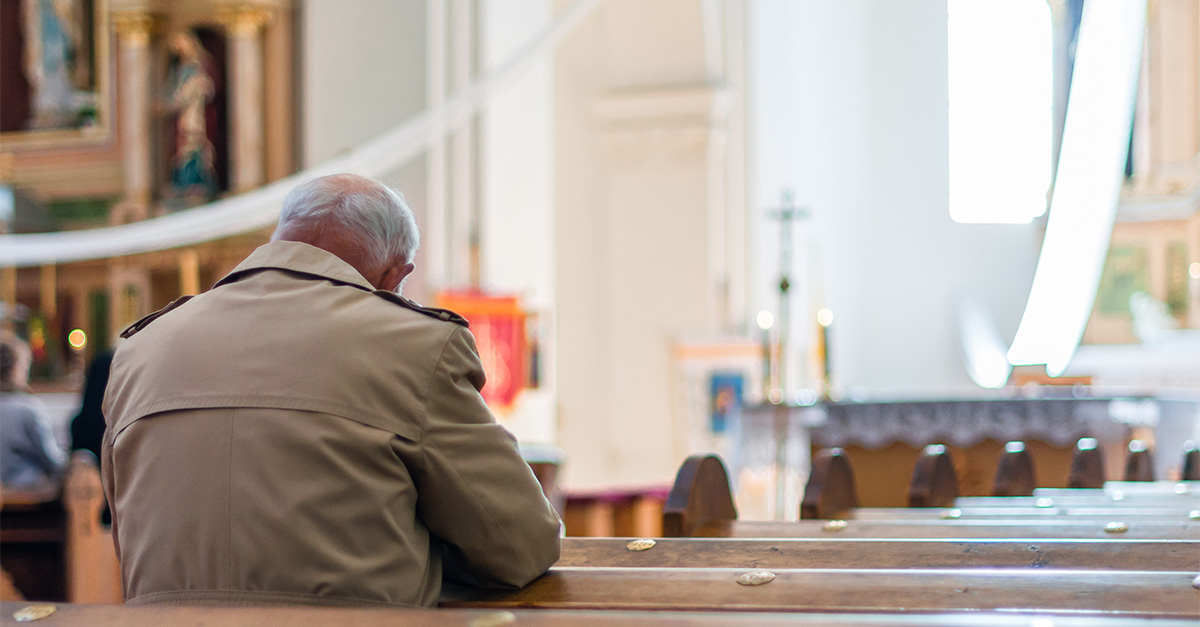


Get a free copy of Parental Rights & Education when you subscribe to our newsletter!

“God draws those sharp lines of relief for the Christian life around the local church. While that may grate against our expressive individualism-saturated sympathies, within those boundaries is a world of joy, grace, fellowship — and yes, love — that one can scarcely imagine is possible.”
@William_E_Wolfe
In the first part of this two-part series, I encouraged Christians to be radicals. To be rebels — but rebels with a cause in our crazy age, that cause being a commitment to a local church. Our culture prioritizes radical autonomous liberty and freedoms, the pursuit of the “self” above all else. It is there that the philosophers of our age tell us we first find true love. Love must be free and unhindered if it is to be authentic. But the truth is that true love draws sharp lines. And God draws those sharp lines of relief for the Christian life around the local church. While that may grate against our expressive individualism-saturated sympathies, within those boundaries is a world of joy, grace, fellowship — and yes, love — that one can scarcely imagine is possible. It’s a world that reflects the perfect, sublime, and endless love that exists between the Father, Son, and Holy Spirit, our trinitarian God, from eternity past to eternity future.
Want to be a part of that? Then join a local church.
I argued in my first article that once you join a church, you should aim to make it as hard and as painful as possible to leave that church in the future if the Lord should ever call you onward. How you do that is 1) Plan to Stay. Pick a town. Get a job. Find a Gospel-preaching church. Then take that “five-year plan” and take a temporal sledgehammer to the outer limits, extending it to “indefinitely.”
In other words, join a church and plan not to leave. That’s the first and arguably most important step in aiming at the goal of long-term church membership, or as I called it, aiming at “really hard church goodbyes” if you ever have to move on. Now, in this second half of the series, I hold out two other ways to invest deeply in your local church: 2) Plant Deep Roots, and 3) Pour Into Others.
Plant roots that will hurt if (or when) you do have to pull them up one day. There is a difference between being present and being purposeful, between putting down roots planted so deep that they become interconnected with others around you and shallow roots that can be yanked up at a moment’s notice. Yes, you could simply “log a lot of hours” in a local church over time, and there is some value to that. But even better than just “doing time” is an intentional striving to plant deep roots in the soil of the congregation. Psalm 1:3 reminds us that the “blessed man” is “like a tree planted by streams of water.” These “roots” I’m referring to will primarily be lodged in the “streams of water” of the teaching ministry of the church and in meaningful relationships with others. This means you must seek to know, and grow, alongside your fellow members — and, crucially, allow them to get to know you.
Our church (well, actually not mine anymore since, as I pointed out in Part 1, my wife and I had lived through our own painful goodbye when God called us elsewhere) prays that members would make it a regular part of their lives to be open and transparent with each other and prioritize spiritual conversations. Take it upon yourself to initiate these intentional conversations and discipling relationships. Join a small group. Join a community group. Reached out to an elder for coffee. Open your home to single brothers and sisters. If you are a sister in the church, invite yourself over to help a busy mom with her daily chores and childcare. And then do it all again next week…and next month…and for the years to come.
Prioritize being present for the teaching and preaching of the Word. If the doors of the church are open, plan to be there — maybe even five minutes early! There will be a noticeable difference in your attachment to your church if you are there on Sunday mornings and Sunday evenings, for the mid-week Bible study, at member meetings, etc., than if you just breeze in and out for the main gathering on Sunday morning. Let the Word of God faithfully preached bind you to your local church.
In other words, I am calling you to invest in your church — invest your time, money, heart, hopes, and future. Trees push their roots down deep to get to the nutrients in the lower layers of soil needed to sustain their growth over time. Deep roots both fuel growth and provide stability in the storms of life. So where are yours planted? At your job? At the gym? In your hobbies? Why not plant them in your church instead and watch how God uses that effort to help you grow up into the fullness of Christ (Ephesians 4:13). Bear in mind, the deeper your roots, the harder — and more painful — it will be to pull them up if God ever calls you onward. But rest assured that potential future discomfort pales in comparison to the blessings you can experience and dispense to others by being firmly and fully committed, plugged in, and rooted in the life of your congregation now.
In his book “Living Life Backward: How Ecclesiastes Helps Us Live in Light of The End,” David Gibson reminds us that the paradoxical path to true biblical joy, happiness, and personal fulfillment isn’t found in “I” but rather in “we.” In Chapter Four, “Living a Life Less Upwardly Mobile,” Gibson writes, “If you can live in this world in such a way that the person or people beside you — your friend, your spouse, your children, your brother, your sister, the people God has put in your path — are your waking concern and your dominant focus, then you will find happiness.” We could add to that list: Your fellow church members.
If you are a covenanting member at your church, you don’t need to wait for permission to start loving others; they gave it to you — every one of them — when they voted you into membership. One way to plant yourself in a local church for the long haul is to start pouring into others, putting them first and loving them without expecting anything in return. Resolve to be the friend and fellow member to others that you would like them to be to you. Show hospitality. Send that email to your pastor or deacon letting them know that you are praying for them. Volunteer to give an elderly member a ride to church. Bring a meal to that family that just had a new baby. Joining a church isn’t like purchasing a movie ticket — it doesn’t entitle you to sit back and enjoy the show. Rather, it’s like enlisting in the Army: It’s a call to action, a call to discharge your duty, for the good of the whole unit.
Be prepared: Pouring out into others, who might not stay forever, can be a hardship you encounter in a long-term stint at your church. We call it “hugging the parade.” There may come a time when you look up from a prayer on a Sunday morning and realize that you hardly know anyone anymore — not because you are new but because everyone else is! In those moments, you can respond in one of two ways. You can allow your desire for familiarity and comfort to take you by the hand and lead you down a path that ends in a cul-de-sac of frustration and discouragement. Or, you can grab hold of 1 Corinthians 13:7, remembering that “Love bears all things, believes all things, hopes all things, endures all things” and let God’s Word lead you into new acts of service as a conduit of grace for the good of others and for His glory.
As I stood up in the pulpit to say goodbye to the only church home I’ve ever known as an adult Christian, I looked out at the faces of members who had been faithfully planted in the ecosystem of our congregation for much longer than I had. I saw a faithful widow, who has been a member for over 50 years. I saw families with five kids, and I knew their parents hadn’t even met each other before they showed up in our sanctuary 15-plus-years prior. I saw folks who I knew for a fact choose to live “less upwardly mobile lives” for the sake of long-term investment in the church. And I realized that their faithful, plodding obedience, a slow and steady march in the same direction over the years and decades, serves the church in untold ways that we won’t know or appreciate this side of glory. Remember: As products of the “now” generation, we can severely underestimate the accumulated value of a long-term presence of a committed member who is just “there” because that’s where they plan to be.
So, if you desire to be that sort of oak, that resplendent sequoia, for your local church — and you should unless the Lord leads you elsewhere — keep these three simple steps in mind. Plan to stay. Plant roots so deep and interconnected that it will break your heart if you have to pull them up. And pour into others — freely, indiscriminately, and sincerely — as you yourself are filled up by Christ. Careers come and go. Financial investments can disappear in an instant. Health and beauty slip away no matter how tightly we try to grasp them. But the Church, built on Christ, will last forever. It’s simultaneously the most radical thing you could ever do and the best and longest-term investment you can ever make.

A 10-year veteran of the conservative political movement, William Wolfe served as a senior official in the Trump Administration, both at the Pentagon and the Department of State. Prior to his service in the administration, he worked for Heritage Action for America and as a congressional staffer for three members of Congress, including the former Rep. Dave Brat. He has a B.A. in History from Covenant College and is currently finishing his Master of Divinity at The Southern Baptist Theological Seminary.
Christian conservative news and issues that matter. Curated just for you!
